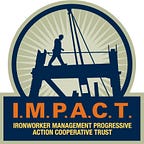State and Federal investigations are now underway in the case of lane closures that clogged traffic on the George Washington Bridge in New Jersey for four days last August. Politicians and pundits are tossing around accusations of wrong-doing by employees of the New York-New Jersey Port Authority and the office of New Jersey Governor Chris Christie. The national press – or at least the D.C.-New York media – may feast on the political implications of what the alleged improprieties may mean for New Jersey’s Republican governor, but I think the episode is symptomatic of a larger, more troubling issue.
While I'm appalled that deliberate political action resulted in life-threatening situations and costly delays resulting in over 21 million dollars of economic losses to businesses and families, the same situation faces millions of Americans every day due to the deterioration of our nation’s infrastructure and political gridlock.
A Deadly Dynamic: Neglecting Bridges
The George Washington Bridge (GWB) is emblematic of thousands of other bridges nationwide – it suffers from chronic traffic jams, has a long maintenance backlog and is showing signs of aging that you’d expect in an 83 year-old superstructure. And while the GWB is currently undergoing an eight year-long, billion dollar renovation, it remains the busiest bridge in the world: It is a major connector of commercial industry and human capital in the Northeastern U.S. that will require upkeep for decades to come.
The GWB’s condition is mirrored by other bridges coast to coast. American bridges are in bad shape, and there is a dire need for massive funding to shore them up or rebuild them altogether.
As we know from major bridge collapses in Minneapolis in 2007 and in Washington State in May 2013, we’re seeing increasingly that merely driving across some bridges might mean that you are putting yourself at risk of serious harm. Rather than focusing only on the question of whether certain New Jersey politicians can “survive” the unfolding GWB-related political scandal, we need to ask if millions of Americans who traverse the nation’s bridges every day are going to survive their trips. Moreover, we need to question why it is that political battles at the Congressional level has gummed up the funding pipeline for improving America’s bridges.
This is a slow-motion scandal with far-ranging implications. Why is political gamesmanship stopping the critical investment in our country’s future that labor, the Chamber of Commerce and the public overwhelmingly support?
Political Gridlock Is The Real Scandal
The political gridlock that I ponder in this context concerns national elected officials from both sides of the aisle who – over the span of several presidential administrations – have failed to make the upkeep and revitalization of our bridges a top priority. President Barack Obama addressed the urgent topic of increasing employment rates and the American economy during his State of the Union Address on Tuesday.
The condition of U.S. bridges and other aspects of our national infrastructure systems – roads, sewers, manufacturing and energy facilities – should be inseparable from the debate over how to end our lingering economic recession.The troubling state of our bridges, in particular, is a premium example of how political priorities has created gridlock on a massive scale that impacts millions of Americans daily.
By ending political gridlock that stymies funding for major infrastructure projects, jobs can be created, lives saved, and our future of transportation and commerce secured. Instead, we have decay and dangerous backlogs in desperately needed maintenance projects.
Consider these data-points:
* The US and Puerto Rico are home to more than 66,700 structurally deficient bridges and 84,748 functionally obsolete bridges , the Federal Highway Administration reports.
* Last year, the American Society of Civil Engineers (ASCE) rated one out of nine U.S. bridges as structurally deficient, and also found that the average age of the nation’s 607,380 bridges is currently 42 years.
As a journeyman iron worker and representative of more than 100,000 workers– including many thousands of bridge workers -- I read about the GWB-related political squabbling taking place now in New Jersey and interpret it differently than others might.
As I see it, the real scandal still unfolding is in the question of how a critically vital piece of America’s infrastructure, the bridges that are literally our lifeline to jobs, hospitals, and economic development, have been neglected for so long. Where is the outrage over the political gamesmanship at the Congressional level that has caused desperately-needed work on American bridges to grind to a halt?
Feel free to share your suggestions in Comments. In future posts I'll look at other topics concerning labor, the workforce, and American infrastructure.
